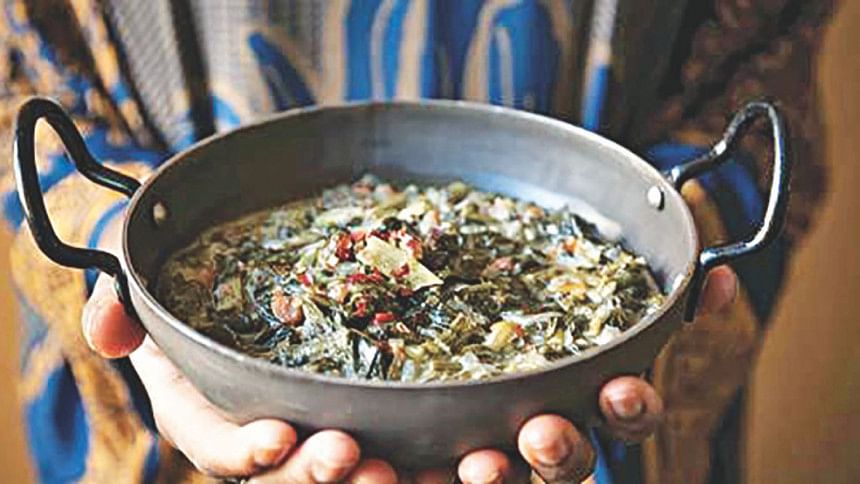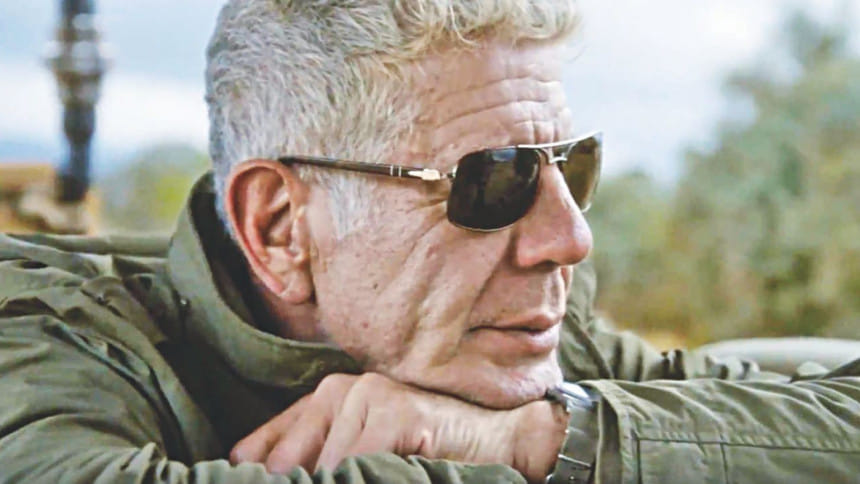Why I loved Anthony Bourdain

A few months ago, I was under fire for mourning a death. My favourite celebrity Anthony Bourdain had died. I fell in love with Bourdain in my 20s — long before I became a vegan or even a vegetarian, and long before I entered the field of animal welfare.
I don't remember what he cooked and I never followed any of his recipes. I was clearly in love with something else (perhaps his bad boy image?), and my young mind didn't think to question what that was. Fortunately, or unfortunately, what impresses a 20-some year old is hardly ever adequate to impress a 42-year-old. Also, ever since the advent of YouTube and Netflix, TV had largely disappeared from my life, and I had not seen Bourdain on screen for years. The news of his death still hit me hard.
By the time Bourdain died, my passion and profession had given me a label. I advocated for animal welfare and veganism, and that's what I was expected to do no matter what, no matter when. Bourdain was a proud meat eater. He ate meat, he cooked meat and he often poked fun at and belittled vegetarians and vegans. I never knew this side of him until my fellow animal welfare colleagues pointed it out to me. I didn't approve of his ways, and I realised that I admired him nevertheless for different reasons.
Bourdain loved people. His ability to unite people through food was unrivalled, and he inspired others to do the same. Through the simple act of sharing meals, he showcased both the extraordinary diversity of cultures and cuisines, and the similarities that we all share.
He travelled extensively and was welcomed into people's homes to break bread with their families. This was a privilege, which he never took for granted, and he appreciated every morsel of food that was offered to him, often by people who had very little to offer. The idea of refusing any food was an ultimate insult to the people in his book, and he detested any 'ideology' that encouraged that behaviour.
This, I can understand.
Vegans still represent a minority in this world, and we often find ourselves in situations where we have to say no to all kinds of food. This can get tricky. When you say no to any offering, you instantly isolate yourself, often by also hurting another person's feelings/insulting their culture. This is not to say that vegans should swing back and forth whenever it's convenient, but to acknowledge that the vegan advocacy must be done with kindness and patience, which I admit is not an easy feat.
Our heads are filled with images and information of the horrors of the meat, dairy and egg industry, and we can no longer see a hamburger or a cheesecake without playing a re-run of Earthlings in our heads.
I, for instance, never compromise when I am at home/with my friends/my family who are well aware of my beliefs, and I never ever bend rules for people who are just downright obnoxious and dismissive of animal suffering. I also never eat meat or fish no matter what the circumstance is. But when my dear friend's 80-year-old mother brings me prasad after her prayer, which I know has milk in it, I will most definitely accept it with a bowed head.
This is a woman who lays out an elaborate vegan spread for me whenever I visit her house. I really don't believe that my commitment to animals would lessen by taking one bite of that sweet. Last time I visited her, she once again brought me prasad. It looked different this time. She said "this is a milk-free variety." I said, "it doesn't matter."

Just as some animal lovers (myself included) sometimes forget to be kind to people, Bourdain forgot to show kindness to animals in his pursuit to understand people. He was kind nevertheless. When asked about the latest wave-making meatless concoction, the Impossible Burger, he commented "There are a lot of hungry people in the world, and I guess if it serves as a means of providing much-needed protein to people who need protein to live, I guess I'm all for it."
His focus was always people and only people. I do wish that he also included animals in his circle of compassion, but I cannot not love and admire him for his unusual ability to love and connect with humans. I also believed that Bourdain was constantly evolving as a human being and as a story teller, and his journey would eventually, but inevitably, lead him to the path of veganism, but I suppose now we will never know.
My meat eating self might have loved you for your broken in jeans and salt and pepper hair, but my vegan side loved you for your compassion for people.
Bourdain's Vegan Mchicha Wa Nazi Recipe
This vegan Zanzibari dish, made with malty coconut-milk powder, is the richest creamed spinach. The luscious flavour develops in the last 10 minutes of cooking, so be sure to let it simmer for the full 30 to 35 minutes.
Serving: 4-6
Ingredients
3 tbsp vegetable oil
2 medium red onions, minced
2 plum tomatoes, cored and minced
1 serrano chilli, seeded and minced
2 (10-ounce) packages frozen spinach, thawed
1½ tsp ground cumin
1½ tsp kosher salt
½ cup coconut-milk powder
⅓ cup warm water
Method
Heat the oil in a medium saucepan or pot over medium heat; sauté the onions until they begin to soften or about 5 to 7 minutes. Add the tomatoes and chilli and cook, stirring occasionally for 3 minutes. Stir in ⅓ cup water, spinach, cumin, and salt, and bring to a simmer. Decrease the heat to low and cook, covered, until the tomatoes and onions are completely soft and the spinach is extra tender, which should be around 20 to 25 minutes.
In a small bowl, dissolve the coconut-milk powder in the warm water. Stir the coconut-milk mixture into the spinach and continue cooking, covered, on low heat until slightly thickened, about 10 minutes.
Photo: Collected

 For all latest news, follow The Daily Star's Google News channel.
For all latest news, follow The Daily Star's Google News channel. 



Comments